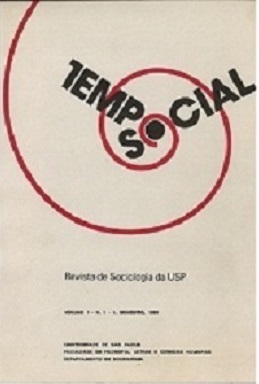The Anarchists: two distante generations
DOI:
https://doi.org/10.1590/ts.v1i1.83320Keywords:
Anarchism - Brazil, Social classes, State, Trade union, Social movementsAbstract
This essay compares two periods, separated by three decades, of anarchism in Brazil. Even thoug its libertarian thought has essentially been preserved, the movement underwent significant transformations both in the number and social origin of its followers and in tis situation in modern industrial society, along with its institutional relations and techniques of social action. In general terms, the terrain for sowing anarchist thought passed from the working class and unions to the middle class and universities. Minuscule anarcho-syndicalist leagues have only recently been formed. As a result, new problems have arisen, since it all injuries the original anarchist´s practices and principles. At the same time, the State´s and worker´s mutual marginalization - which favored libertarian "anti-statism" - has been done away with. The working class´ entrance into the State´s space by way of official unions and political parties left that class´ anti-state libertarian prepositions without resonance. Blocked by the official union and rejecting party structures, anarchism tends to remain in the area of social momevents.Downloads
Download data is not yet available.
Downloads
Published
1989-06-01
Issue
Section
Articles
License
Copyright (c) 1989 Tempo Social

This work is licensed under a Creative Commons Attribution-NonCommercial 4.0 International License.
How to Cite
Simão, A. (1989). The Anarchists: two distante generations. Tempo Social, 1(1), 57-69. https://doi.org/10.1590/ts.v1i1.83320


